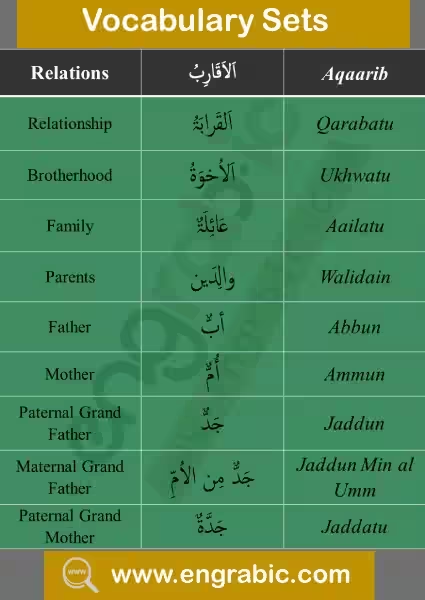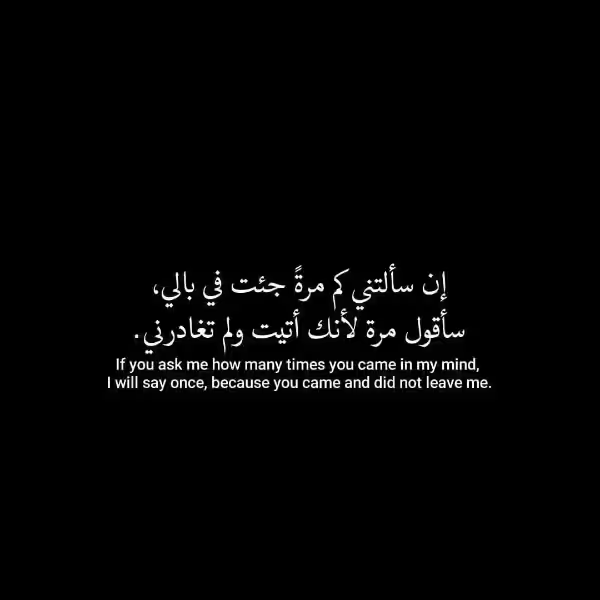
Arabic, a language steeped in history and culture, possesses a treasure trove of words, each carrying deep meaning and cultural significance. This article delves into the fascinating world of Arabic vocabulary, exploring diverse categories from beautiful expressions to powerful declarations and everything in between.
Words of Beauty and Love
Arabic boasts a captivating lexicon, filled with words that evoke powerful emotions and aesthetic beauty. These words, beyond their linguistic elegance, often carry strong cultural or religious undertones.
Examples of beautiful words:
- Jamāl (جمال): Beauty. This word is not just a description; it embodies the aesthetic ideals of Arabic culture, often associated with grace and harmony. The word conjures images of breathtaking landscapes, exquisite craftsmanship, and radiant faces.
- Ḥubb (حب): Love. This deeply rooted term encompasses all forms of affection, from familial bonds to passionate romantic love. Its resonance often reflects cultural and religious values, highlighting the importance of connection.
- Salām (سلام): Peace. More than just a greeting, salām encapsulates the Islamic principle of peace and harmony. It’s a word that embodies the aspiration for tranquility and the avoidance of conflict.
These words, and numerous others like them, represent the beauty and depth of Arabic expression. They are much more than mere linguistic tools; they are portals into a rich cultural and historical tapestry.
Words of Wisdom and Destiny
Arabic words often encapsulate intricate human experiences and profound concepts. They capture the essence of life’s complexities, from the certainty of destiny to the resilience of patience.
Words with profound meaning:
- Qadar (قدر): Destiny. This word reflects the Islamic belief in a predetermined path, highlighting the concept of divine order and the acceptance of life’s unfolding.
- Ṣabr (صبر): Patience. This powerful term signifies resilience in the face of adversity, emphasizing the strength of character needed to persevere through challenging times, a key virtue in Arab culture.
- Hikma (حكمة): Wisdom. This word is highly valued, and often associated with age, experience, and the pursuit of understanding. It signifies the accumulation of knowledge and insights.
These terms demonstrate the capacity of Arabic to convey complex concepts, offering a unique lens through which to view the human condition.
Words of Kindness and Hospitality
Arabic culture is renowned for its warmth and hospitality. These qualities are reflected in the language itself, through a vocabulary that speaks to generosity and welcome.
Examples of “nice” words:
- Laṭīf (لطيف): Kind, gentle. This word describes someone possessing a compassionate and considerate nature, someone who is adept at putting others at ease.
- Karīm (كريم): Generous. This word speaks to the virtue of giving freely and generously, a cornerstone of many Arab cultures.
- Muḍyāf (مضيف): Hospitable. This word highlights the welcoming nature of Arab society, the importance of creating a comfortable environment for visitors, and the generosity often extended to guests.
These words embody the cultural values of Arab societies, emphasizing the warmth and genuine care often extended to others.
Powerful Expressions of Strength and Determination
Arabic is also a language of strength, often reflecting the historical resilience and determination of Arab peoples.
Examples of “powerful” words:
- ʿAzīma (عزيمة): Determination. This word represents the unwavering resolve and commitment to achieve goals, a key attribute in overcoming challenges.
- Iṣrār (إصرار): Persistence. This word emphasizes the importance of continuing forward despite obstacles, showcasing the tenacity and resilience that is crucial in achieving goals.
- Quwwa (قوة): Strength. This word encapsulates a broad range of meanings, from physical strength to the strength of character and resolve. It embodies the power necessary to overcome adversity.
These words resonate with the strength and historical narrative of the Arab world, showcasing the language’s ability to convey ambition and fortitude.
Words from the Quran
The Quran, the holy book of Islam, plays a crucial role in shaping the Arabic language. Its words carry profound spiritual and moral weight.
Examples of words from the Quran:
- Raḥmān (رحمان): The Most Gracious. This word embodies the divine compassion and benevolence of God.
- Raḥīm (رحيم): The Most Merciful. This word captures the divine tenderness and compassion of God, offering comfort and support.
These words from the Quran are not just words, but sacred expressions that reflect the core values of Islam. Their inclusion in Arabic demonstrates the language’s religious significance.
Words Capturing Unique Cultural Nuances
Arabic boasts a rich vocabulary that embodies intangible cultural concepts difficult to translate directly into English.
Examples of words reflecting unique cultural concepts:
- Tarraffuʿ (ترفّع): Elevated demeanor. This word encapsulates a complex concept of social grace and refined comportment, signifying respect and consideration in social interactions.
- Murūʾa (مروءة): Chivalry. This word signifies a combination of moral courage, honor, and generosity, highlighting the importance of social responsibility and respect.
- ʿIshra (عشرة): Companionship. This word embodies the profound value placed on friendship, community, and the sharing of experiences.
These words illuminate the unique cultural nuances of the Arabic language, highlighting the complexities that are lost in translation.
Words of Affection and Endearment
Even within the formality and depth of Arabic, words of affection and endearment highlight the warmth of the language.
Examples of cute Arabic words:
- Ḥabībi (حبيبي): My beloved. This term is a classic expression of affection, expressing deep love and intimacy.
- Nūr ʿayni (نور عيني): Light of my eye. A beautiful and intimate expression of endearment, conveying deep affection and profound care.
These words, and countless others, demonstrate the emotional range and expressive power of the Arabic language.
In conclusion, Arabic words are a profound source of insight into the culture, history, and values of the Arab world. This exploration into various categories of words has merely scratched the surface of the richness and depth of this captivating language. Learning Arabic allows one to connect with this vast and meaningful world.
Arabic Words and Their Meanings: Frequently Asked Questions
This FAQ section provides answers to common questions about Arabic words and their meanings. Please note that this information is intended for general understanding and does not cover every nuance of the Arabic language.
What is the significance of Arabic words like jamāl (beauty) and ḥubb (love)?
These words, and others like salām (peace), go beyond their literal meaning. Jamāl evokes the aesthetic beauty highly valued in Arab culture. Ḥubb signifies love, but also often carries deeper cultural and religious connotations. Salām, for example, is more than a greeting; it embodies a core Islamic principle of peace.
What are some Arabic words that express profound human experiences?
Arabic possesses rich vocabulary to capture complex emotions and ideas. Words like qadar (destiny), reflecting Islamic beliefs, and ṣabr (patience), signifying resilience, demonstrate the depth of expression. Other examples include shukr (gratitude) and tawba (repentance), highlighting spiritual and moral values.
What are some examples of “nice” or welcoming Arabic words?
Terms like laṭīf (kind), karīm (generous), and muḍyāf (hospitable) showcase the warm and generous nature of Arab culture. These words highlight the importance of hospitality and social grace in Arab societies.
How does Arabic express determination and strength?
Words such as ʿazīma (determination), iṣrār (persistence), and quwwa (strength) illustrate the language’s ability to convey resilience and historical significance. These terms often resonate with the strength and historical narrative of the Arab world.
What is the significance of Arabic words from the Quran?
Words like Raḥmān (The Most Gracious) and Raḥīm (The Most Merciful) are not merely words; they carry powerful spiritual and moral weight, reflecting the religious significance of the Arabic language and its use in the Quran.
How does Arabic capture unique cultural concepts?
Arabic has a unique vocabulary for cultural concepts difficult to translate directly into English. Tarraffuʿ (elevated demeanor), murūʾa (chivalry), and ʿishra (companionship) represent intangible cultural values and nuances not fully captured in other languages.
What are some examples of cute or affectionate Arabic words?
Ḥabībi (my beloved) and nūr ʿayni (light of my eye) demonstrate the language’s ability to express intimacy and affection. These words showcase the depth of emotional expression available in Arabic.
How can I learn more about Arabic words?
There are many resources available, including online dictionaries, language learning apps, and cultural immersion opportunities. Consider starting with basic vocabulary and grammar to build a strong foundation.








